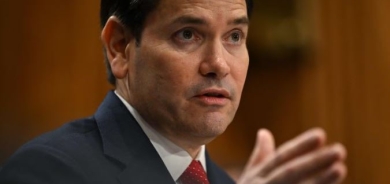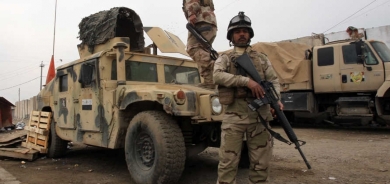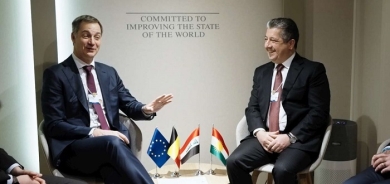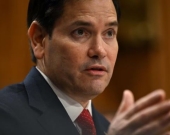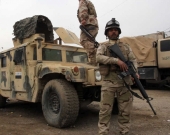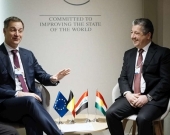Kurds press US for weapons

The semiautonomous Kurdish region in northern Iraq is pressing the Obama administration for sophisticated weapons it says Kurdish fighters need to push back Islamist militants threatening their region, Kurdish and U.S. officials said.
A Kurdish official said the request was discussed during a Kurdish delegation's visit to Washington in early July, and U.S. officials said Washington was considering ways to bolster the Kurdish defenses.
The Kurds say U.S. help is critical to enable the Peshmerga, the Kurds' paramilitary force, to repel fighters from the Islamic State, an Al-Qaeda spinoff that seized a wide swath of Iraqi territory in a stunning advance in the last few months.
The requested military supplies include tanks, sniper equipment, armored personnel carriers, artillery and ammunition, and also body armor, helmets, fuel trucks and ambulances.
Kurdish officials say the Peshmerga need the weapons to guard the borders of the rugged mountainous region and to protect hundreds of thousands of Iraqi refugees sheltering there after fleeing the Islamist rebels' onslaught.
U.S. officials say they are considering ways to help the Kurds defend themselves, but direct provision of arms to the Kurdistan Regional Government, in the way Washington arms Iraq's central government in Baghdad, appears highly unlikely.
Iraqi Prime Minister Nouri al-Maliki, a Shiite Arab, has clashed repeatedly with Kurdish leaders over budgets, land and oil. U.S. weapons supplies could set a potentially troublesome precedent for circumventing an allied government to provide U.S. arms to a regional force.
"The provision of security assistance via Foreign Military Sales and Foreign Military Financing must be coordinated with central government authorities, in Iraq and elsewhere," a State Department official said on condition of anonymity.
"We provided some direct assistance in the past to Kurdish security forces in coordination with the central government," the official said. "Given the threat that Iraq faces by [the Islamic State], the United States will continue to engage with Baghdad and Arbil to enhance cooperation on the security front and other issues."
The U.S. caution reflects Washington's delicate position as it seeks to help Iraq stave off collapse to a rag-tag, extremist army less than three years after the U.S. war there concluded.
In the weeks since the Islamist rebel assault exposed the Iraqi army's weakness and the effects of years of sectarian squabbles, U.S. officials have scrambled to bring Shiites, Sunnis and Kurds together to confront militants.
At the same time, the long-running Iraqi Kurdish ambition for independence has been strengthened by the Peshmerga's stronger showing against militants, by Kurdish territorial gains, and by the fact that Maliki has fallen out of favor in Washington.


